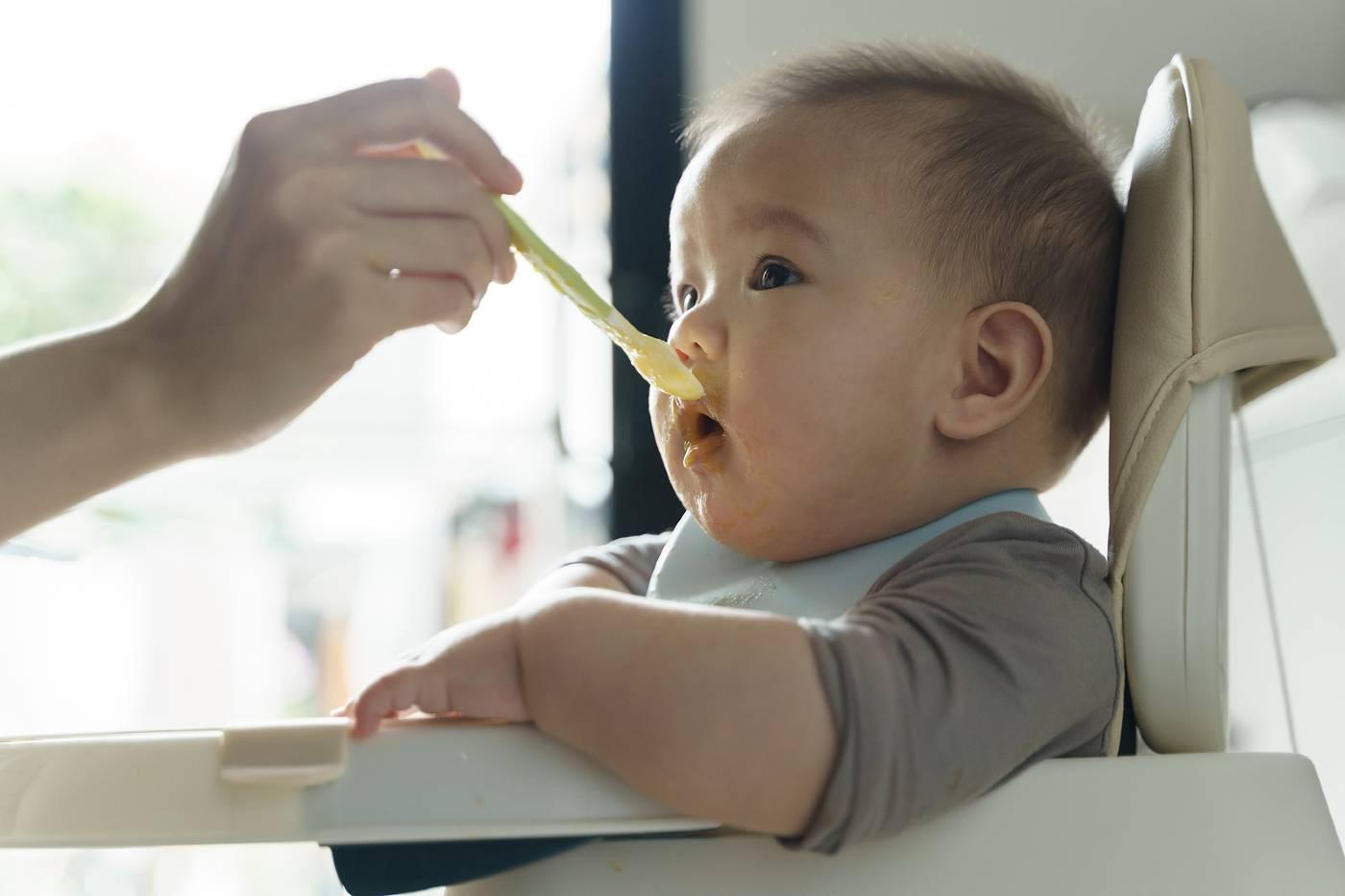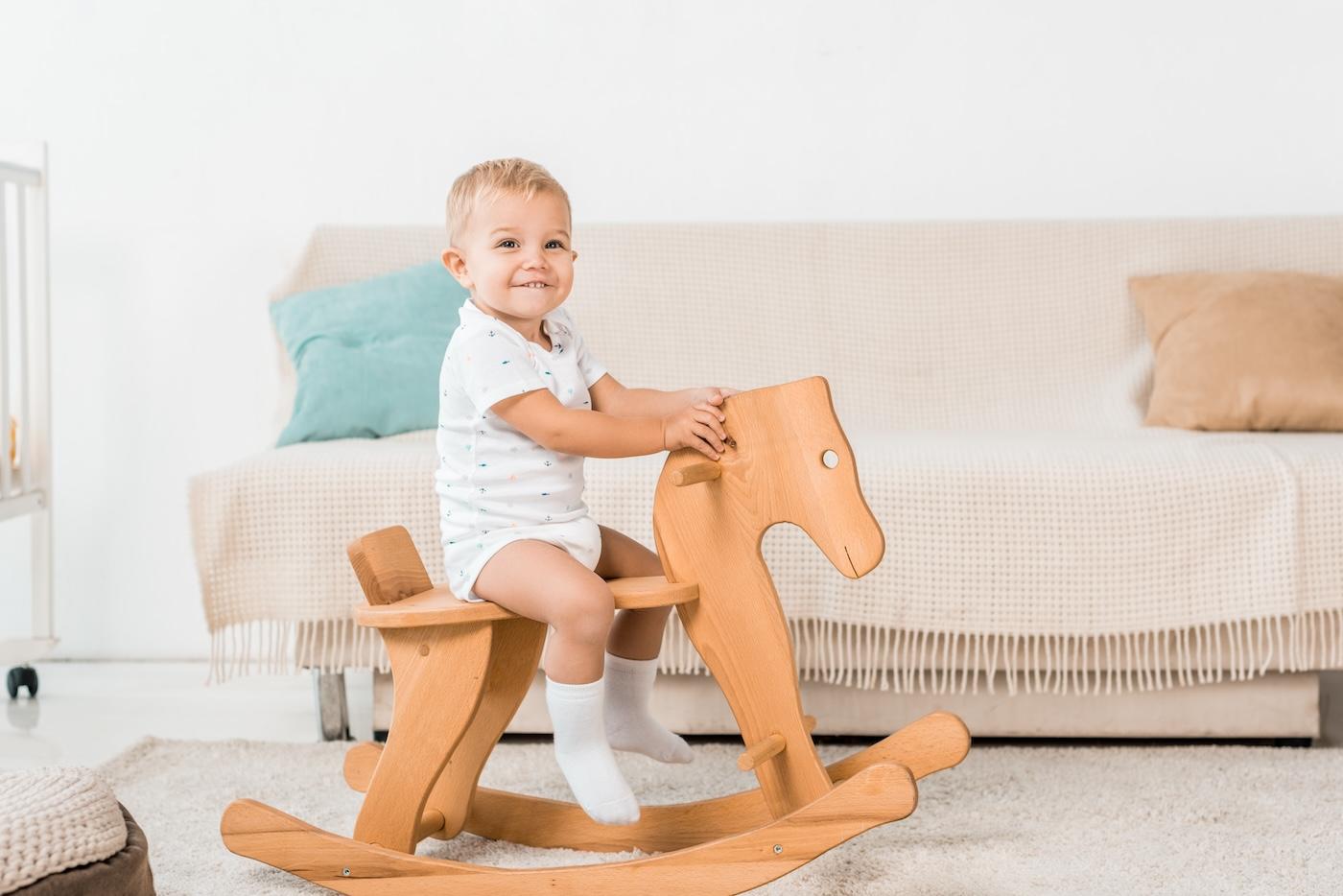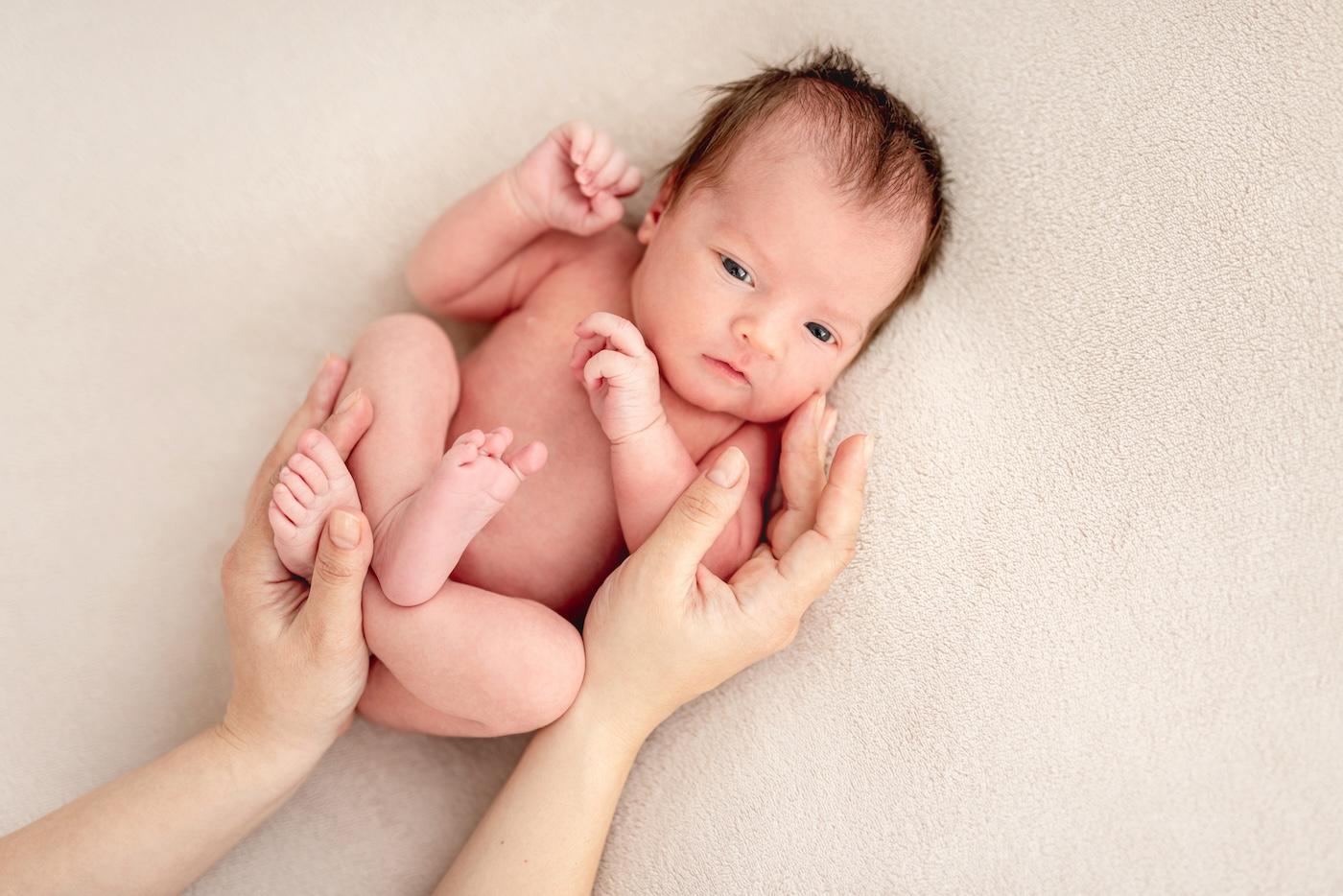BABY
The Benefits of Homemade Baby Food
Curious how homemade baby food stacks up against store-bought baby food? Here, four reasons making your own might be the right choice for you.

Written by
Gabrielle McPherson, MS, RDN, LDN

Truth: Not all parents have the time or the inclination to make their own baby food—and that is A-okay! But if you have been considering becoming a master baby food chef, here is a little inspiration to get you motivated.
Homemade Baby Food Benefit No. 1: Making baby food is affordable
While it does take more time to prepare homemade baby food than to pop open a jar, it is often cheaper to make your own. For instance, a 4-ounce jar of banana baby food costs roughly £1.10, whereas 28 grams banana costs £0.22.
Homemade Baby Food Benefit No. 2: Making baby food is healthy
When compared to homemade baby food, store-bought baby food is higher in sodium and sugar, according to a 2017 study. On top of that, further research has shown that popular infant food pouches contain significantly more sugar per serving than jarred baby food. This is, well, jarring since babies do not need any added salt or sugar to liven up their meals. Instead, they need to experience the natural flavours of food in order to develop a diverse and healthy palate. That said, as your baby progresses through eating a greater variety of food, it is totally okay (and smart!) to brighten their meals with healthy add-ins, like a sprinkle of cinnamon in mashed butternut squash or crushed garlic in whipped cauliflower.
Homemade Baby Food Benefit No. 3: Baby gets exposed to more flavours and textures
Store-bought baby food is quick and convenient, but their flavours are often vastly different from homemade baby food. For one, research shows that many store-bought baby foods that claim to be rich in dark green vegetables, actually do not contain much at all—and they are often sweetened with fruit puree, which distorts the flavour. This is important, since repeated exposure to the likes of kale, spinach, broccoli, and more is key for helping babies learn to like these flavours. Beyond exposure to green leafies, making baby food gives you more control over offering lots of different flavours and textures early, which can help little ones develop food preferences in the future—and, fingers crossed—hopefully reducing the likelihood of picky eating.
Homemade Baby Food Benefit No. 4: Baby eats what the family eats
Sharing a family meal—with everyone enjoying the same foods—is a wonderful benefit of making your own baby food. Remember, there is no need to buy different foods for your baby. Simply grocery shop for a variety of fruits and vegetables, making sure that the version your little one gets is appropriately prepared. That includes removing Baby’s portion before you add salt or strong seasoning. At the same time, consider opting for fruits and vegetables that you might not typically buy. This way, the whole family is trying new foods together!
What next? Check out our easy-as-can-be quick start guide to making your own baby food!
Disclaimer: The information on our site is NOT medical advice for any specific person or condition. It is only meant as general information. If you have any medical questions and concerns about your child or yourself, please contact your health provider. Breastmilk is the best source of nutrition for babies. It is important that, in preparation for and during breastfeeding, mothers eat a healthy, balanced diet. Combined breast- and bottle-feeding in the first weeks of life may reduce the supply of a mother's breastmilk and reversing the decision not to breastfeed is difficult. If you do decide to use infant formula, you should follow instructions carefully.
SHARE THIS ARTICLE
PARENT PICKS
Bestsellers
More on Baby
About Gabrielle McPherson, MS, RDN, LDN
Gabrielle McPherson, MS, RDN, LDN is registered dietitian in Missouri who specializes in community and pediatric nutrition. Gaby is passionate about encouraging families to eat well in simple, practical ways that are realistic...and delicious! When not working, Gaby loves cooking, baking, and making messes and memories with her sous-chef/preschooler Charlotte.



















